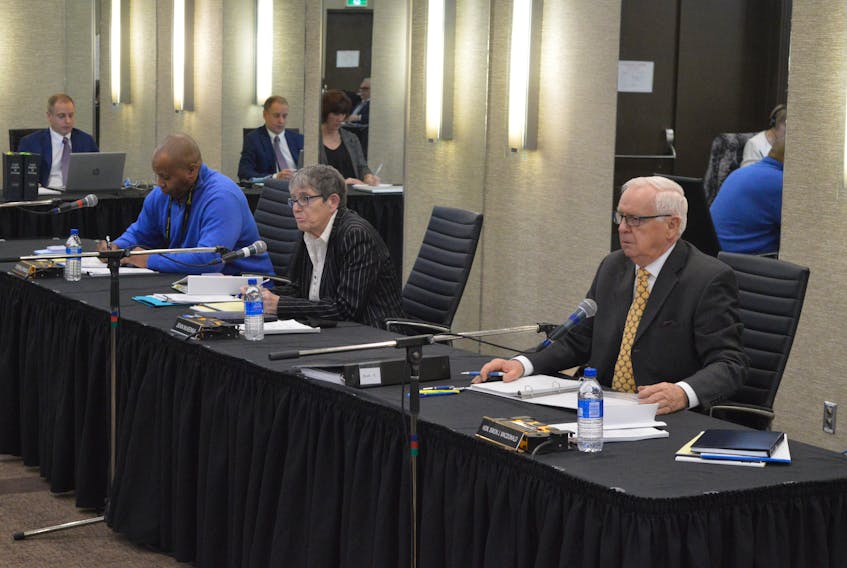SYDNEY, N.S. — When Halifax Regional Police instructed their counterparts in Cape Breton to arrest a man accused of second-degree murder, they were unaware the accused had left them a phone message advising of his whereabouts.
Const. Michael Stevens of Halifax police testified Monday he was told by other Halifax officers there was no indication Christopher Garnier had left the provincial capital region and travelled to Cape Breton.
His testimony came during the final day of a Nova Scotia Police Review Board hearing into a complaint filed by Christopher Garnier’s father, Vince Garnier.
In his lengthy complaint, Vince Garnier, among other things, contends Cape Breton Regional Police made an illegal arrest in taking his son from his mother’s home.
Christopher Garnier was released on conditions after being charged with second-degree murder in connection with the 2015 death of an off-duty Truro police officer. Among the conditions was a provision allowing him to live at his father’s place in Bedford and his mother’s home in Millville.
Between Feb. 17-19, 2017, Garnier had travelled to Cape Breton to spend the weekend at his mother’s home. He advised a commissionaire with the Halifax police where he was going and also left a phone message on a police check-in line.
Stevens testified Monday that he was told there was no phone message from the accused. He also said he did not check with the commissionaires nor did he think anyone else had examined whether the commissionaires had contact with the accused.
An audiotape played during Monday’s proceedings indicated that Christopher Garnier called the check-in line and reported he was leaving Halifax and going to Cape Breton along with the date of his return.
Stevens told a three-member hearing panel that other officers did check the phone-in line and reported no message from Garnier.
Stevens said he never checked the line himself and accepted what other officers had told him.
Halifax officers had conducted a compliance check at the father’s Bedford home prior to midnight on Feb. 17 but received no answer. A Cape Breton police officer did a home check in the early morning hours of Feb. 18 and received no response.
Shortly after 10 a.m. on Feb. 18, Stevens said he had made contact with Angela Garnier, Christopher’s stepmother, who was also in Cape Breton at the time.
Stevens said he was checking on the whereabouts of Christopher Garnier and Angela Garnier reported he was in Cape Breton and she would have him call the officer.
Christopher Garnier did make phone contact with the officer. A compliance check, during which a Cape Breton officer spoke with Christopher Garnier, was also reported to Stevens later in the day.
Shortly after 10 p.m. on Feb. 18, another compliance check was made and officers were in contact with Christopher Garnier. It was during this visit that another Cape Breton police officer took pictures of the home and the door police used to make contact.
On Feb. 19, Cape Breton officers, acting on a request from Halifax, arrested Christopher Garnier and turned him over to Halifax police who charged him with breaching his release conditions by failing to respond in Bedford on Feb. 17 and Cape Breton police on Feb. 18.
By the time the case went to trial in Supreme Court in April 2017, the Bedford breach was dropped and only the Millville charge proceeded. The presiding judge ruled that Christopher Garnier did not deliberately breach his conditions ruling those in the home at the time were asleep and didn’t hear the officer knocking.
Stevens said the decision to make the arrest flowed from the police reports in Cape Breton and Halifax which were discussed with two senior Halifax officers. He said he had no involvement in deciding which charges were to proceed.
The Halifax constable also testified that he is no longer able to access his original notes from that period as the documents have gone missing.
The six-day hearing heard testimony from 12 witnesses and the panel has now reserved a decision and will receive written final submissions from Vince Garnier and lawyers representing four Cape Breton police officers.









